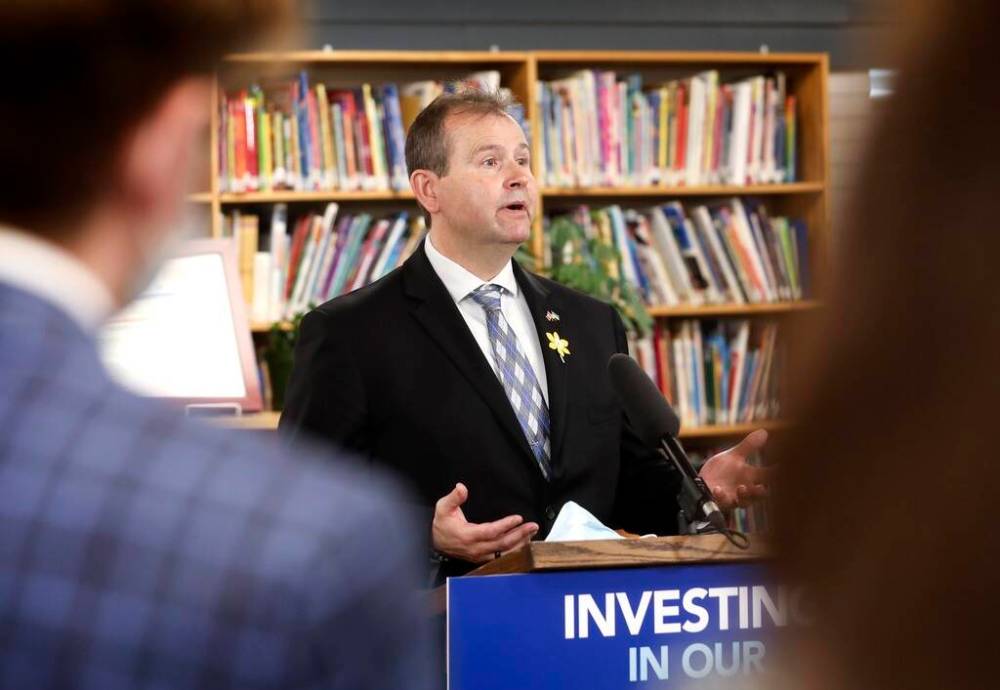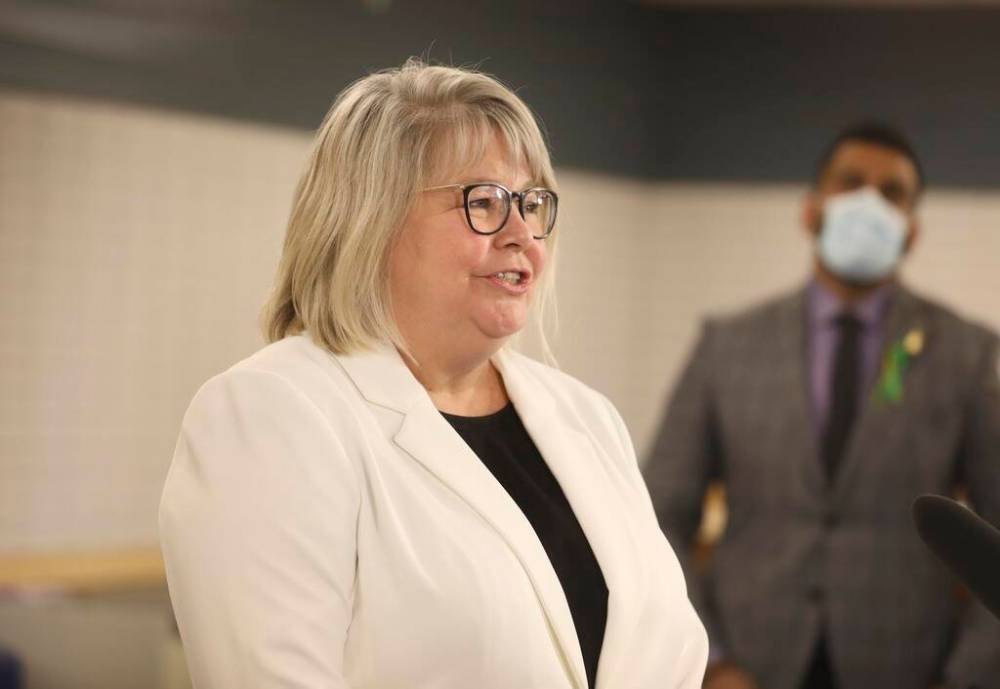Province tabs $7M for special needs education
Advertisement
Read this article for free:
or
Already have an account? Log in here »
To continue reading, please subscribe:
Monthly Digital Subscription
$1 per week for 24 weeks*
- Enjoy unlimited reading on winnipegfreepress.com
- Read the E-Edition, our digital replica newspaper
- Access News Break, our award-winning app
- Play interactive puzzles
*Billed as $4.00 plus GST every four weeks. After 24 weeks, price increases to the regular rate of $19.95 plus GST every four weeks. Offer available to new and qualified returning subscribers only. Cancel any time.
Monthly Digital Subscription
$4.99/week*
- Enjoy unlimited reading on winnipegfreepress.com
- Read the E-Edition, our digital replica newspaper
- Access News Break, our award-winning app
- Play interactive puzzles
*Billed as $19.95 plus GST every four weeks. Cancel any time.
To continue reading, please subscribe:
Add Free Press access to your Brandon Sun subscription for only an additional
$1 for the first 4 weeks*
*Your next subscription payment will increase by $1.00 and you will be charged $16.99 plus GST for four weeks. After four weeks, your payment will increase to $23.99 plus GST every four weeks.
Read unlimited articles for free today:
or
Already have an account? Log in here »
Hey there, time traveller!
This article was published 07/04/2022 (1381 days ago), so information in it may no longer be current.
School divisions will soon receive extra dollars for more educational assistants and other resources to support students with special needs, following two years of COVID-19 disruptions that have impacted Manitoba’s most vulnerable learners.
During a midday news conference at General Byng School in Winnipeg, Education Minister Wayne Ewasko announced $7 million in new provincial funding is being allocated for resources for students with special needs in 2022-23.
“We are supporting students… to have full access to education and a sense of belonging in their communities — and in doing so, we will strengthen our capacity to provide a foundation for a richer and better future for us all,” Ewasko told reporters Thursday.

The minister indicated the extra cash, which will be disbursed based on an existing funding formula, will allow school teams to expand behavioural specialist support services and specialized programming, among other things.
Divisions will see a top-up to categorical grants for students who require additional support as a result of a disability or multiple disabilities that cause developmental, behavioural or learning difficulties — or a combination of the above, also known as Level 2 and 3 funding.
The latest announcement brings provincial funding for 2022-23 K-12 operations to approximately $127 million.
It comes as the province undertakes a review of the way it funds public schooling.
The president of the Student Services Administrators’ Association of Manitoba expressed excitement Thursday about the province developing an equitable formula for inclusive education disbursements to replace the existing block funding model.
Also during the media event, Kendra Gowler applauded the province’s new one-time commitment.
“It invests in our children with diverse learning needs who require and benefit from that intentional, student-specific planning and deserve a system that wraps around them and their families in support and care,” Gowler said.
Alan Campbell, president of the Manitoba School Boards Association, called the minister’s recognition that students with special needs have been negatively affected by the COVID-19 pandemic “good news.”
“Every new investment on the part of the government when it comes to special needs requirements in education is good news, mostly because special needs funding has been (almost) flat since this government took power (in 2016).”
Campbell said many of the challenges that existed pre-COVID-19 have been exacerbated over the last 25 months, including lengthy wait lists for assessments.
The Manitoba Teachers’ Society echoed those sentiments.
“Inclusive education can’t succeed if the students in need of support are not quickly identified to receive it,” said union leader James Bedford, who represents upwards of 16,000 public school educators.

Bedford said there are not enough school-based clinicians or resources available to address demands, particularly in the North, where it is not uncommon for a single school psychologist to be serving every K-12 building in a district.
With the funding model review underway, Bedford also noted approximately two-thirds of the annual money that support students with special needs and student services comes from local education property taxes. He raised concerns about plans to eliminate those fees when there is no provincial blueprint to replace that revenue.
Meantime, Ewasko, who had a career in student services before entering politics, touted inclusive education as a “priority” for the province Thursday.
On the subject of pandemic operations, he told reporters officials continue to listen to public health advice and allow school divisions to make calls around items such as mask mandates. The minister acknowledged a trend of cases increasing a bit across the school system and society, but indicated public health is saying numbers will soon plateau.
Answering a question about how parents can gauge the risk of sending children to school after the removal of the COVID-19 online dashboard and other data, Ewasko suggested: “There is still a lot of information on the health website.”
“I wish I had a crystal ball or a (time machine) to either jump forward or reverse,” he added.
“We do have to listen to public health advice and, again, in regards to following the fundamentals: staying home when you’re sick, washing your hands, social distance, mask if you feel it’s necessary for yourself. I can’t say that we’ll never have masks back, but I can’t say that we will either.”
maggie.macintosh@freepress.mb.ca
Twitter: @macintoshmaggie

Maggie Macintosh
Education reporter
Maggie Macintosh reports on education for the Free Press. Originally from Hamilton, Ont., she first reported for the Free Press in 2017. Read more about Maggie.
Funding for the Free Press education reporter comes from the Government of Canada through the Local Journalism Initiative.
Every piece of reporting Maggie produces is reviewed by an editing team before it is posted online or published in print — part of the Free Press‘s tradition, since 1872, of producing reliable independent journalism. Read more about Free Press’s history and mandate, and learn how our newsroom operates.
Our newsroom depends on a growing audience of readers to power our journalism. If you are not a paid reader, please consider becoming a subscriber.
Our newsroom depends on its audience of readers to power our journalism. Thank you for your support.

